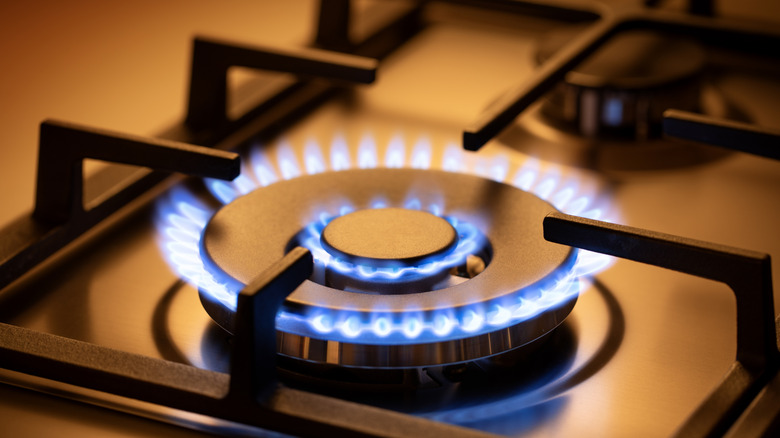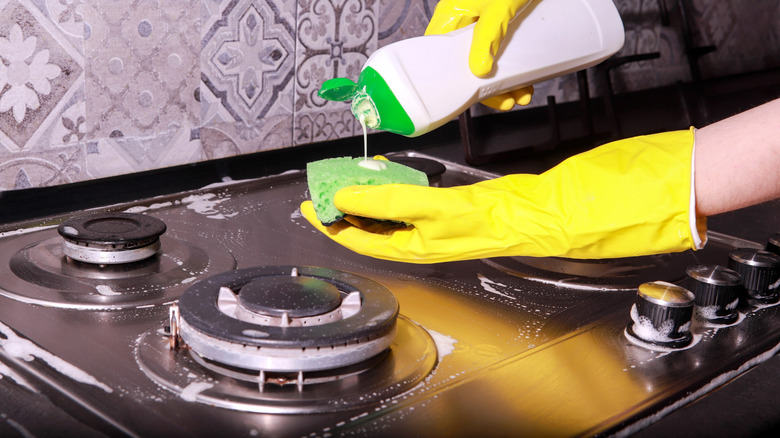How Often You Really Need To Clean Your Gas Stovetop
Gas stove tops are used in an estimated 39% of U.S. households, though there are some who are ready to say goodbye to gas stoves altogether. Better temperature control, even heat distribution, and faster heating are some of the pros that make gas stoves easy to use. But we'd be lying if we said there aren't mistakes you can make while using them. One of those mistakes is not cleaning your stove regularly. With so many nooks and crannies we don't blame you, though this can make things harder in the long run.
Ideally, you should give your gas stove a quick clean after each use, especially if there are any fresh food stains. That probably isn't the answer you want to hear, but cleaning a splatter that's just occurred is much easier than trying to scrub off an old, dried up one. A deep clean can be done once a week, but this might vary depending on how often you use it.
The consequences of a dirty stove top
Cleaning your gas stove regularly is about more than just aesthetics — it can cause your food to cook unevenly by clogging your burners or even become a fire hazard. If there's old food residue stuck on your burner, the flame can get weaker, making it much less efficient to cook on. If the stain is blocking parts of the flame, not only will your food cook inconsistently, but your cookware will pay the price in the form of black marks. In cases where the burner is extremely dirty, you might not have a flame to cook with at all.
As mentioned, food spills left around the burner can cause a fire, which is why cleaning them is crucial. Splatters of greasy foods like oil and meat are particularly flammable, so it's best to clean these immediately after your stovetop has cooled. The best way to clean your gas stove is simply with dish soap and water or use a baking soda paste for dried food stains. A quick wipe after each use and a weekly deep clean will save you a lot of future headaches.

